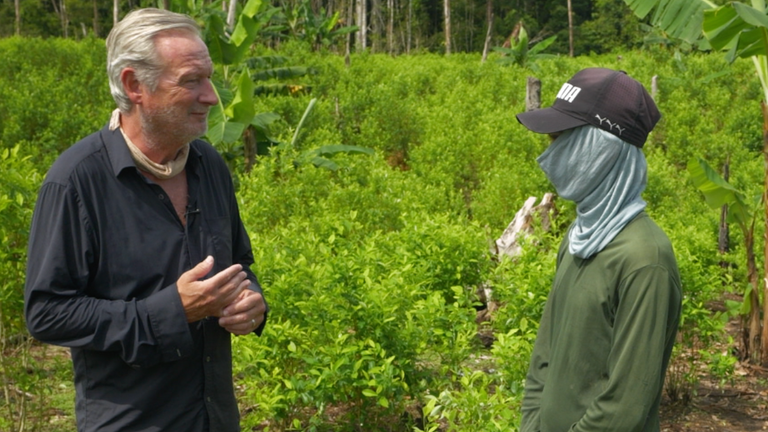Articles in this Cluster
03-10-2025
A senior member of the Venezuelan gang Tren de Aragua, José Antonio Márquez Morales, has been captured in Colombia in a joint operation involving the US and the UK. Morales, also known as Caracas, is alleged to have played a central role in managing the gang's logistics and finances for extortion, drug trafficking, and smuggling. The arrest comes amid tensions between the US and Venezuela over the Trump administration's anti-drug-trafficking efforts in Latin America. The US has accused Venezuelan President Nicolás Maduro of being in league with drug cartels and has offered a reward for information leading to his capture. Maduro has rejected Washington's accusations and defended his government's actions against drug trafficking.
Entities: José Antonio Márquez Morales, Venezuela, Tren de Aragua, Colombia, US • Tone: neutral • Sentiment: negative • Intent: inform
03-10-2025
The Colombian government has handed over a portion of Pablo Escobar's former Hacienda Napoles estate to women victims of the country's armed conflict. The estate, known for its 'cocaine hippos,' was once a symbol of Escobar's wealth and power. The land transfer is part of a larger effort to redistribute land to rural Colombians and provide hope to those affected by the conflict. The estate is also famous for its hippo population, which has grown to around 150 and is considered an invasive species.
Entities: Pablo Escobar, Colombia, Gustavo Petro, Hacienda Napoles, Medellin Cartel • Tone: neutral • Sentiment: positive • Intent: inform
03-10-2025
The article reports on a visit to Medellin, Colombia, Pablo Escobar's home city, where drugs are readily available on the streets. The city has a thriving 'narco' culture, with images of Escobar everywhere and a 24-hour drug market. The article also explores the production of coca, the plant used to make cocaine, in a hidden plantation on the Peru border. The farmers who grow coca earn very little and are driven by the need to provide for their families. The article suggests that as long as there is demand for cocaine in the US and other countries, coca farmers will continue to produce it, despite President Trump's war on drug cartels.
Entities: Pablo Escobar, Medellin, Colombia, Amazon River, Peru • Tone: analytical • Sentiment: neutral • Intent: inform
03-10-2025
The article reports on the impact of US President Donald Trump's declared war on drug cartels in Ecuador, a country used as a transit point for drug cartels. Ecuadorian police, aided by US resources and military muscle, are intensifying their efforts to combat drug trafficking. The article follows a police officer, 'Lynx', a former special forces officer, as he leads raids on suspected drug dealers and gathers intelligence to disrupt the drug trade. The police operations are shown to be disrupting the drug chain, with the ultimate goal of passing on valuable information to the US to catch higher-level figures in the drug cartels.
Entities: Donald Trump, Ecuador, Guayaquil, United States, Latin America • Tone: neutral • Sentiment: negative • Intent: inform
03-10-2025
The Trump administration is attempting to justify military strikes on alleged Venezuelan drug boats by claiming the US is in a 'non-international armed conflict' with drug cartels. The administration notified Congress of its legal arguments for the strikes, which killed 17 people and sparked international outrage. The memo reportedly frames the US military's attacks as part of a sustained conflict, deeming cartels as 'non-state armed groups' whose actions 'constitute an armed attack against the United States'. The escalation has been questioned by lawmakers and human rights groups, who challenge the legality of the attacks. The US has accused the Venezuelan government of being involved in drug trafficking, and the administration's actions may be seen as an attempt to pressure the Venezuelan government.
Entities: Donald Trump, Venezuela, Caribbean, US, Congress • Tone: negative • Sentiment: negative • Intent: inform
